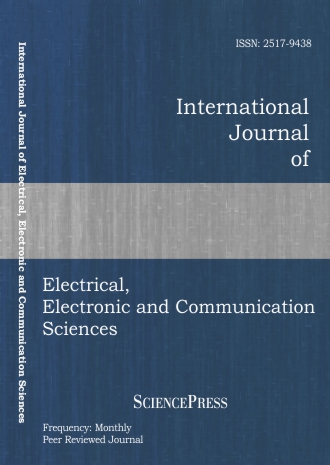
Scholarly
Volume:12, Issue: 1, 2018 Page No: 64 - 67
International Journal of Electrical, Electronic and Communication Sciences
ISSN: 2517-9438
163 Downloads
The Excess Loop Delay Calibration in a Bandpass Continuous-Time Delta Sigma Modulators Based on Q-Enhanced LC Filter
The Q-enhanced LC filters are the most usedarchitecture in the Bandpass (BP) Continuous-Time (CT)
Delta-Sigma (ΣΔ) modulators, due to their: high frequencies
operation, high linearity than the active filters and a high quality
factor obtained by Q-enhanced technique. This technique consists
of the use of a negative resistance that compensate the ohmic
losses in the on-chip inductor. However, this technique introduces a
zero in the filter transfer function which will affect the modulator
performances in term of Dynamic Range (DR), stability and in-band
noise (Signal-to-Noise Ratio (SNR)). In this paper, we study the
effect of this zero and we demonstrate that a calibration of the
excess loop delay (ELD) is required to ensure the best performances
of the modulator. System level simulations are done for a 2ndorder
BP CT (ΣΔ) modulator at a center frequency of 300MHz. Simulation
results indicate that the optimal ELD should be reduced by 13% to
achieve the maximum SNR and DR compared to the ideal LC-based
ΣΔ modulator.
Authors:
References:
[1] S. Gupta, D. Gangopadhyay, H. Lakdawala, J. C. Rudell, and D. J. Allstot,